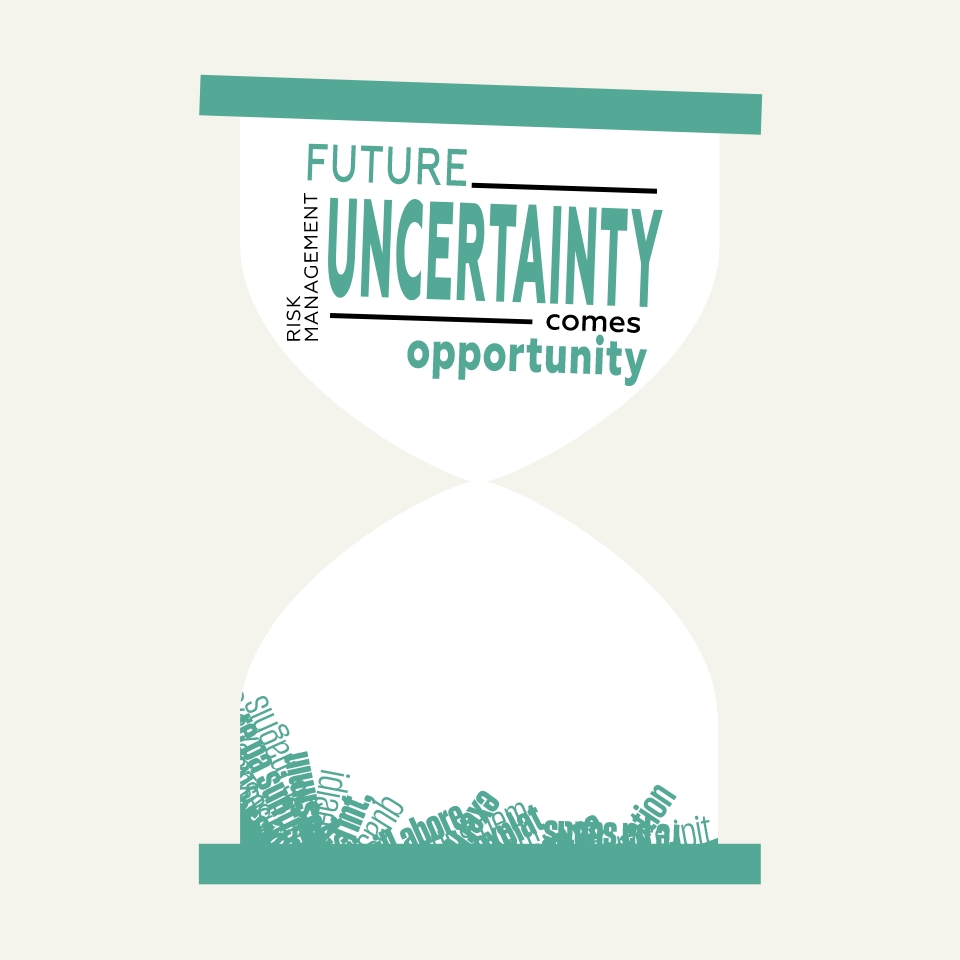

Opinion article
Published in Edition 13
With uncertainty, comes opportunity
The Future of Risk Management
Almost 50 years ago, Gordon Moore, the CEO of Intel, observed that the speed of computer chips doubled every two years. Soon, computers once the size of refrigerators fit in the palm of your hand. Your everyday home appliance now has more processing power than the Apollo moon lander. A cell phone that cost a couple thousand in the 1980s costs a couple hundred today.
In every facet, our world is evolving at a pace never seen before and in ways which few could have predicted. Globalisation, digitisation, urbanisation and climate change pose huge challenges for businesses, and uncertainty even more so. The risk management sector is also in flux, presented with a range of evolving threats associated primarily with climate change and technological development.
According to the Lloyd’s City Risk Index, built in collaboration with Cambridge University, the risk of cyber‑attack now poses a severe threat to the global economy. As connectivity increases and society becomes more reliant on technology, it becomes more vulnerable than ever. In addition, businesses continue to digitise operations, supply chains and business transactions, and new threats continue to emerge, ranging from data breaches to ransomware attacks, or damage to crucial infrastructure and networks. For instance, in Europe specifically, our estimates have shown that one type of global cyber threat – a ransomware attack – could cost European businesses up to $75bn, with the retail, services, and manufacturing sectors likely to be the hardest hit.
Climate related threats also pose a rising concern in Europe, where the temperature is predicted to warm faster than other regions.1 As a result, many European cities could be affected financially by climate‑related risks including flood, drought, heatwave and freeze, which could reduce economic output by $12.17bn. In fact, this issue is particularly acute in Madrid, which is highly threatened by the risk of drought, with a projected $122m of economic output loss. In fact, the European Environment Agency estimates that renewable water resources per capita fell by 24 per cent between 1960 and 2010, especially in southern Europe. Overall, Madrid, Barcelona and Valencia could lose up to $7.34bn annually, while in Lisbon, an extreme flooding scenario could cause up to $40bn of losses.
At Lloyd’s, we faced a spate of natural disasters, including hurricanes and wildfires in California, and we acted quickly. Today, we are happy to report that our balance sheet is exceptionally strong, with net resources growing to €36.3bn (£32.4bn) (December 2018: £28.2bn) and the central solvency coverage ratio increasing to 266% (December 2018: 249%). The financial strength of the Lloyd’s market was underscored by the recent affirmations of our ratings by Standard & Poor’s (A+ Strong), AM Best (A Excellent) and Fitch (AA‑ Very Strong).
We have also launched a comprehensive strategy – the Future at Lloyd’s – designed to create the most advanced insurance marketplace in the world, facilitating a more nimble Lloyd’s capable of navigating challenges and seizing opportunities.
The first blueprint of the strategy set out six ideas for improving our way of working, underpinned by a heightened focus on digital, data and technology to deliver greater benefits to customers. The document describes the solutions, next‑steps and execution planning, followed by a series of phased deliveries. Phase I will be delivered during 2020, featuring the launch of an electronic risk exchange which could, over time, process as much as 40% of Lloyd’s risks. In addition, we will pilot a solution that automatically triages claims to speed up settlement and introduce simplified onboarding for our cover holders. Following these initial steps, further solutions will be implemented, including a platform for complex risk to supercharge innovation, a structure which enables new sources of capital, and a streamlined system for syndicates to bring in new products and business.
Looking ahead, we know the world is changing, but with that came new opportunities for growth. New technologies, global trends and climate change mean that the need for specialist risk transfer has become even more important for businesses.
At the Lloyd’s market, we play an important role in mitigating complex evolving threats. Our commitment to paying all valid claims quickly has proven crucial to help communities get back on their feet when disasters strike, easing the burden on governments and taxpayers. Without this insurance, catastrophes can have a much greater impact on economies and communities.
In the cyber sphere, for example, insurance is also indispensable, especially as cyber insurance covers a range of associated costs including business interruption, loss of productivity and consumption, as well as supply chain losses. Considering the increasing demand for specialist cyber products in Europe, Lloyd’s remains committed to providing our European partners with the support and protection they need to grow and prosper. Having pioneered the first cyber insurance policy more than a decade ago, and launched the first cyber insurance in Spain, we do not rest on our laurels.
To ensure that we continue to develop cutting‑edge solutions to help our customers build resilience against new and emerging threats, Lloyd’s ceaselessly strives to adapt and deepen our expertise in the most complex risks facing our clients. As a result, we are confident that we will continue to see increased demand for the types of specialist insurance that Lloyd’s is a pioneer in, such as cyber‑risk and climate protection.
So, despite the uncertainty presented by a fast‑moving risk environment, the Lloyd’s market continues to modernise, evolve and thrive. With the launch of the Future at Lloyd’s strategy, our unparalleled expertise and financial strength, as well as our new base in Brussels at the heart of Europe, the Lloyd’s market is ready to help its customers face the new risk environment head on.
1 See www.eea.europa.eu/publications/green‑infrastructure‑and‑flood‑management
